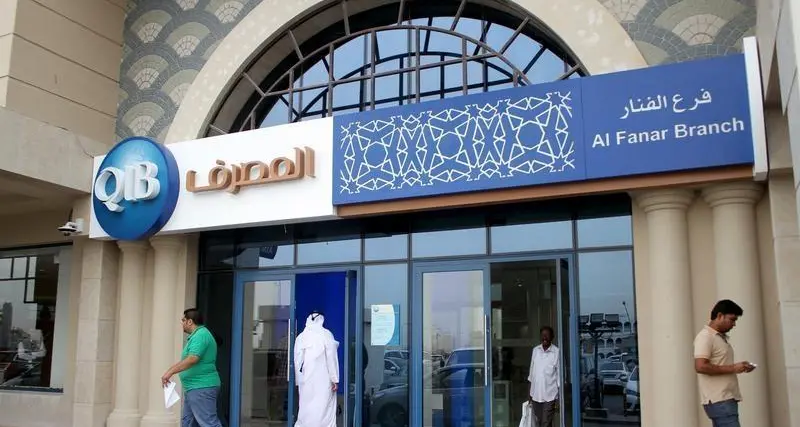PHOTO
Dubai, United Arab Emirates: Callsign, the digital identity pioneer revealed today that the rise of scams is harming organizations’ reputations across the world. The global study* of consumers revealed that just receiving a scam message purporting to be from any brand is enough for 49.8% of them to lose trust in the organization regardless of any real association with the message.
Industries most targeted by fraudsters are financial services and ecommerce with consumers stating that of all scam messages they receive, 63% claim to represent their bank, or a retailer (36%).
The scam problem is rampant across all communications channels. Globally, on average, individuals who receive scam messages via all channels receive 1133 a year, with more than a quarter (27%) saying they receive more messages from fraudsters than friends and family!
With 41% of consumers admitting they don’t report fraudulent messages, the scale of scam messaging and victims is likely to be underestimated.
“Fraud hides in volume and the rapid migration of the global population online in the last 18 months has led to the industrialization of scams. The consequence is fraudsters are using the same channels we’re using to authenticate genuine consumers, and this is harming organizations’ reputations with the decrease of trust in their brands,” explained Stuart Dobbie, SVP, Innovation, Callsign.
The survey is a reminder that consumers have a choice. Almost one fifth (19%) of consumers who have been a victim of fraud they have stopped using the company whose name the fraudster used to execute the scam. In comparison consumers are less likely to leave the channel the scam is executed through (only 10% would leave their network provider) demonstrating that regardless of the scam method, it’s the brand being mimicked that suffers.
SMS appears to be the weakest link with only 8% of consumers thinking it is a safe channel to communicate with their bank or retailer, and the channel has seen a 51% decrease in trust just because they have received a scam text message.
“Organizations need to re-evaluate the communications channels they use to interact with customers to better establish trust. With fraudsters monopolizing open channels such as SMS and email, these channels cannot be relied upon to also authenticate identity. Our research shows that over a third (48%) of consumers think identity is the problem and that people should prove who they are when signing up to use a platform to stop scammers. These consumer concerns emphasize organizations must wake up to the importance of digital identification,” explained Dobbie.
Dobbie concluded: “If organizations are to maintain and build trust in the digital world, they need to better balance protection and experience to ensure their brand is not tarnished by scammers. With Intelligence Driven Authentication, organizations can overcome the fraudsters, protect their brand, create seamless and secure customer journeys and build all important digital trust.”
-Ends-
*All figures, unless stated are from Opinium. The total sample size was 9568 adults with the following national breakdown: Brazil, 1000; Germany, 1000; Hong Kong, 420; India, 553; Indonesia, 541; Philippines, 529; Singapore, 457; UK 1000; USA, 2003.
Regional samples; Benelux, 500; Middle East and Africa (UAE, KSA, Qatar, Bahrain, South Africa) 1065; Nordics; 500. The fieldwork was carried out online by Opinium in June 2021.
About Callsign
Callsign is pioneering the global network for identification. We solve challenges that organizations face in getting their users on to and interacting with their digital platforms easily and securely. We provide solutions to some of the world’s largest banks and offer “bank-grade” identification to public and private sector clients of all sizes. Callsign’s Intelligence Driven Authentication recognizes users by combining deep learning insights with personalized and contextual customer journeys. As a result, users can get on with their digital lives whilst businesses improve customer engagement, increase productivity and reduce the risk of fraud.
To learn more about Callsign and how it is helping businesses to intelligently protect against global threats in real-time visit: https://www.callsign.com/
Media Contacts:
Veronica Carpio
Active DMC
veronica@activedmc.com
Krisha Doshi
Active DMC
krisha@activedmc.com
© Press Release 2021
Disclaimer: The contents of this press release was provided from an external third party provider. This website is not responsible for, and does not control, such external content. This content is provided on an “as is” and “as available” basis and has not been edited in any way. Neither this website nor our affiliates guarantee the accuracy of or endorse the views or opinions expressed in this press release.
The press release is provided for informational purposes only. The content does not provide tax, legal or investment advice or opinion regarding the suitability, value or profitability of any particular security, portfolio or investment strategy. Neither this website nor our affiliates shall be liable for any errors or inaccuracies in the content, or for any actions taken by you in reliance thereon. You expressly agree that your use of the information within this article is at your sole risk.
To the fullest extent permitted by applicable law, this website, its parent company, its subsidiaries, its affiliates and the respective shareholders, directors, officers, employees, agents, advertisers, content providers and licensors will not be liable (jointly or severally) to you for any direct, indirect, consequential, special, incidental, punitive or exemplary damages, including without limitation, lost profits, lost savings and lost revenues, whether in negligence, tort, contract or any other theory of liability, even if the parties have been advised of the possibility or could have foreseen any such damages.











